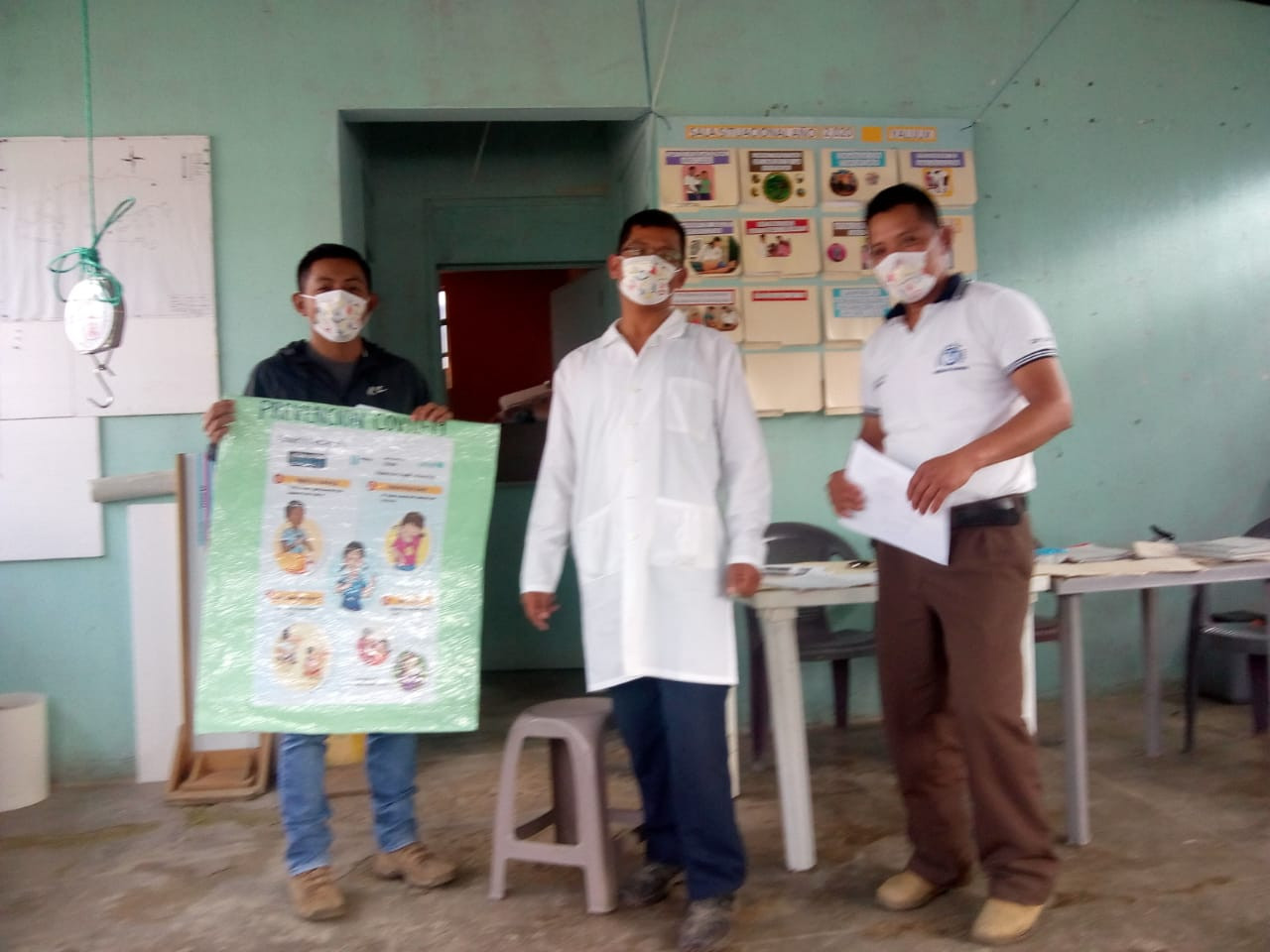October 24th, 2019 | By Stuart Davidson
Motorcycles, Smartphones and Gender Equality - Women at the Front Lines of Health in Rural Guatemala
For more than a decade, Tula’s digital health project has used innovative communication technologies to support the critical work of primary health personnel in rural communities across Guatemala.
We first met Cristina, Mariela, and María in early 2017, during a scheduled visit to a remote health centre in the northern district of Ingenieros – a collection of 36 rural communities, less than 5 kilometers from Guatemala’s northern border with Mexico. As the local health team, Cristina, Health Centre Coordinator, Mariela, Rural Health Technician, and María, Social Worker, are responsible for coordinating the delivery of public health services to each of the communities in the district. Similar to many rural health districts in Guatemala, providing health care services in Ingenieros is a constant challenge due to the remote locations of communities and lack of basic infrastructure.

Our initial conversation in Ingenieros was intended to learn more about how Tula’s digital health network is being used by health personnel; however, our discussion ended abruptly when Mariela received notification on her smartphone of an emergency in one of the communities. Without hesitation, she quickly responded; jumping on her motorcycle and driving off down the dirt road. Instead of having a conversation about the use of smartphones for delivering health services, we ended up witnessing a first-hand experience.
While witnessing the use of smartphones was encouraging to see, it was the leadership and professionalism of the health team in Ingenieros that stayed with us. Especially once considering the barriers often faced by young women in rural Guatemala in gaining access to education, employment, and leadership opportunities.

For more than a decade, Tula’s digital health project has used innovative communication technologies to support the critical work of primary health personnel, such as Cristina, Mariela, and Maria, in rural communities across Guatemala. However, we’ve learned that a fully integrated digital health network extends beyond the delivery of health services. New mobile technologies present opportunities to empower individuals, advance gender equality, and promote and protect human rights. Canada’s Feminist International Assistance Policy identifies transformative gender equality strategies as the “most effective way to reduce poverty and create a world that is more inclusive, more peaceful and more prosperous. By eliminating barriers to equality and helping create better opportunities, women and girls can be powerful agents of change and improve their own lives and those of their families, communities and countries.” Tula proudly works to ensure that its digital health project promotes the advancement of women's autonomy and equal participation as decision makers in their communities, the realization of their full human rights, and the reduction of gender inequalities.
We sought out additional meetings with the health team in Ingenieros to learn more about each member, what drives them towards building healthy communities, and their hopes for the future. In the weeks ahead, we will share more about Cristina, Mariela, and Maria’s journey to their current roles in the health district, their experiences delivering health services in remote communities, and remaining dedicated to their community.

